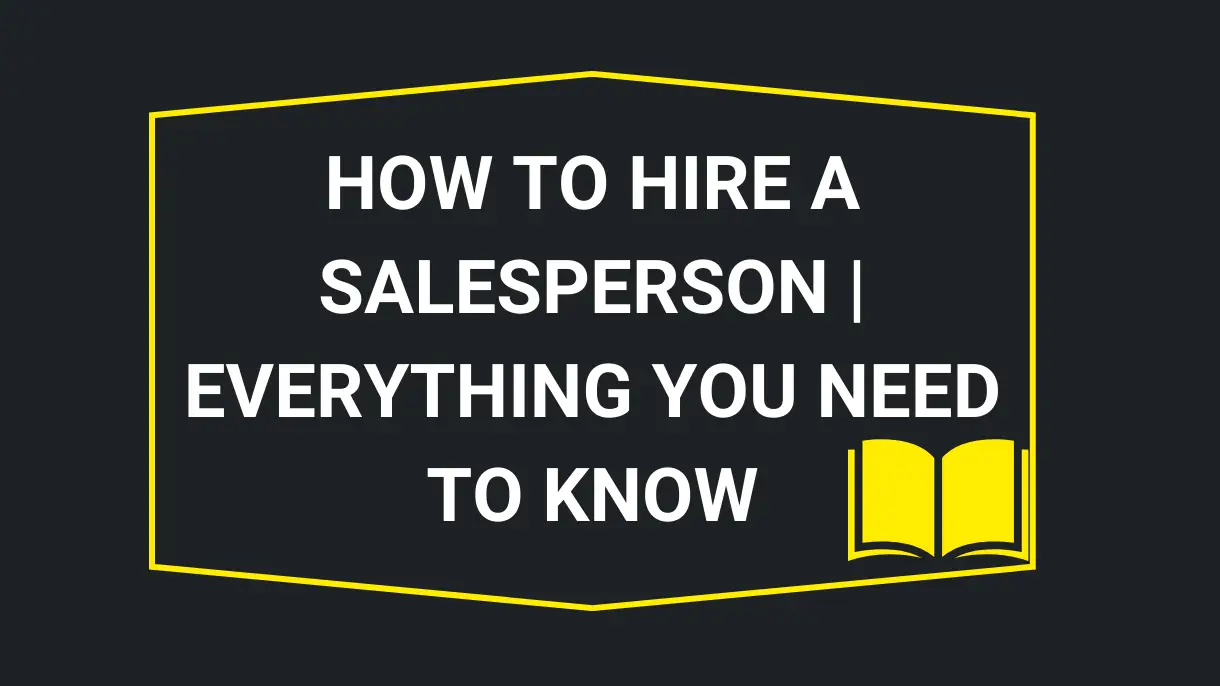It’s fascinating how hiring the right salesperson can directly influence your business’s trajectory. Whether you’re exploring how to get a salesperson quickly, seeking tips on how to find a good salesperson with proven expertise, or looking for an easy way to calculate salesperson commission, this guide will walk you through every step of the process.
Every new hire shapes how clients perceive your brand, through their professional background, work ethic, and the way they represent your brand. By the end of this guide, you’ll get equipped with strategies to recruit, evaluate, and retain top-tier in-house sales professionals who can elevate both your reputation and bottom line.
How to Find the Perfect Salesperson (Good, Right, and Best)
Hiring a salesperson can feel like searching for a needle in a haystack, especially when you’re aiming to find someone who isn’t just “good,” but also the “right” fit for your business and ultimately the best performer onboard. Below, I’ll break down what each of these qualities entails and offer practical tips on how to spot them during your recruiting process.
1. What Makes a Salesperson? (Good, Right, and Best)
A good salesperson has a solid foundation of sales fundamentals: they understand how to prospect, qualify leads, and close deals consistently. They come equipped with:
- According to Zendesk, Closing deals is impossible without clear communication. A good salesperson must be able to listen actively and ask insightful questions.
- Customer relationship management is very essential, So familiarity with common CRMs, negotiation tactics, and pipeline management is what to look out for in a good salesperson
- Harvard Business Review stated that a winning mindset is as important because the salesman will fail to sell more often than he will succeed. So look out for the winning mindset.
How to Spot One When You Come Across Them:
- Look for proven results, challenges, and drawbacks in previous roles.
- Be sure not to ask too many questions about their wins, they’ll tell you what you want to hear.
- What worked in their previous role might not work for you. Don’t ask for replicates, but make sure that they are capable for analyzing your challenge and formulating strategies accordingly. (If you don’t have a strategy in place already).
How to Find a Salesperson Online
It is difficult to find a qualified salesperson using traditional methods which most times are solely word-of-mouth or local networks. According to a recent statistic from the U.S. Bureau of Labor, there’s a total of over 1.8 million job openings for this role yearly. Most often, salespeople tend to leave the career line completely because of the high pressure that comes with sales.
The best way to hire is by looking for people who are open to work immediately, and a bunch of them can be found on job sites and freelancing platforms. Going online can significantly widen your talent pool. Here’s how to streamline your search:
1. Leverage Professional Networks
* LinkedIn: Use advanced filters (e.g., industry, location, experience level) to narrow down potential candidates.
* Online Portfolios and Showcase Platforms: Behance and Dribbble are more common for creatives, but salespeople may feature detailed case studies on their personal websites.
2. Tap into Freelance Websites
* Upwork, Fiverr, or Freelancer.com: Ideal for short-term, project-based sales roles.
* Pros and Cons: Freelancers can offer flexibility, but ensure you verify their communication skills, reliability, and experience in your specific industry.
3. Use Industry-Specific Job Boards
* Niche Boards: Sites like SalesGravy or Rainmakers focus solely on sales roles.
* Benefit: You get a pool of candidates already committed to sales as a career.
4. Optimize Your Job Posting
* Craft a Clear Title & Description: Detail the responsibilities and KPIs (Key Performance Indicators).
* Sell the Benefits: Highlight growth opportunities, culture perks, and commission structures to attract high-caliber talent.
Do you want results?
Let’s have a quick chat about your project. click the Let’s talk button above and follow me on social media for faster response.


